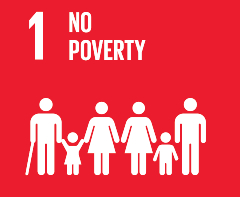
Combatting energy injustices
Billions of people worldwide are unable to meet the basic energy needs we take for granted such as lighting, heating and cooling our homes.
Research at The University of Manchester has revolutionised how policymakers see the issue and outlined plans for how to address energy and fuel poverty across Europe.
Energy poverty occurs when a household is unable to meet its basic energy needs. Without adequate support, this marginalised population go unseen and unsupported and are exposed to increased health and wellbeing problems.
Key facts
- Drove awareness of the billions living in energy poverty
- Made energy poverty a mainstream policy component
- Catalysed an unparalleled programme of EU policy action
Research led by Stefan Bouzarovski, Professor of Geography, has established a framework to explain how domestic energy deprivation affects households and communities over prolonged periods of time, and in relation to existing political and economic inequality.
This work delivers on the UN Sustainable Development Goal 1: end poverty, in all its forms, everywhere.
Impact through understanding
Documenting the extent of the problem across European countries and cities, this research has helped policymakers understand what really causes energy poverty, what it’s like to experience it, and how it’s connected to wider socio-economic challenges.
This work has resulted in the European Union (EU) directing a programme of extensive measures on a historically unprecedented scale and ensured that energy poverty is recognised and integrated into relevant EU regulation and policy.
Characterising energy poverty
The research recognised geographical differences and similarities in energy poverty patterns across the world, ultimately establishing energy poverty and energy vulnerability as a distinct regional and urban phenomenon, capable of influencing the development trajectories and characteristics of entire communities.
Understanding the social and technical forces that shape urban energy consumption has become critical. Not only to address the widening energy inequality, but also because this understanding can help us develop more comprehensive, decisive, determined responses to contemporary crises – health, environmental or societal issues.
Stefan Bouzarovski / Professor of Geography
This has generated a shift in understanding, highlighting how the crisis is affected by inadequate housing and heating systems, economic precariousness, and political uncertainty.
Campaigning for a better future
Through a prolific programme of European-wide engagement – 100 events, 200 high-level presentations, ten policy briefs, two sets of EU member state energy poverty reports, and three pan-EU energy poverty reports – the University generated wide-scale awareness of the crisis and its causes.
As a result, the research shaped the policy direction of the European Commission’s Vulnerable Consumer Working Group, the body responsible for developing EU energy policy.
It is considered an essential tool for building a fairer energy transition in the EU.
The research has framed national energy poverty policies, influencing the work of the UK’s largest fuel poverty charity, National Energy Action, the Spanish National Poverty Strategy, and the National Energy and Climate Plans of nine EU countries – Germany, Italy, Spain, the Netherlands, Romania, the Czech Republic, Latvia, Estonia and Malta.
The impact has also been felt at an urban and regional level, where it has helped several European municipalities to set up tailor-made energy poverty mitigation strategies.
Supporting researchers
- Dr Saska Petrova
- Manon Burbidge
- Ami Crowther
- Majd Jayyousi
Connected activity
- Putting energy poverty on the map
- On Net Zero (publication)
- EU recognises Manchester academic as an ‘ordinary hero (news story)


